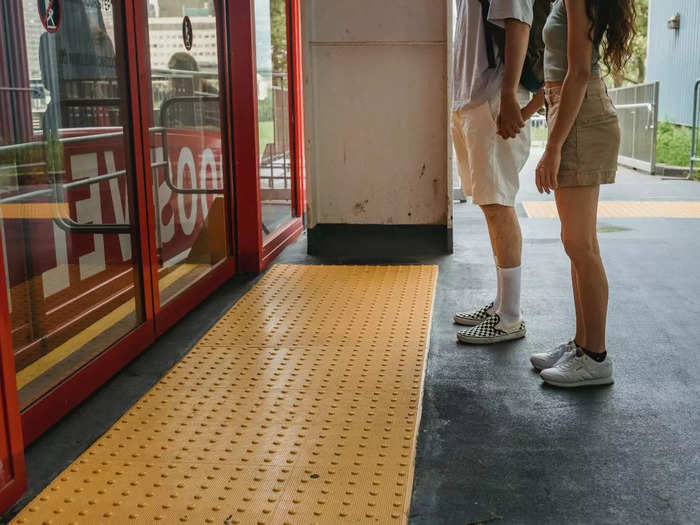- Singles are now prioritising identifying and clearly articulating their boundaries.
- An estimated 81% of Indian singles are feeling positive about dating in 2023.
- The next year is dedicated to establishing better boundaries, dating beyond your type, inter-city love and addressing sexism.
Bumble, the women-first dating app, released a list of dating trends that could shape dating for Indian singles in 2023. And in 2023, the focus is on “finding more balance between the way we date.”
After the pandemic led to the emergence of dates around grocery shopping and walking in the park, singles are back on dating apps. According to Bumble, 81% of Indian singles are feeling positive about dating as we head into 2023.
Last year’s Bumble dating trends predicted the emergence of new behaviours such as hardballing i.e. describing expectations before a date, the rise of alcohol-free ‘dry-dating’ and making hobbies a part of our dates. The next year is dedicated to establishing better boundaries, dating beyond your type, inter-city love and addressing sexism.
“2022 was a formative year with the return of travel, busier social lives and commitments, and a number of turbulent global events. However, for some people this post-pandemic shift left them feeling not in control and exhausted. We have seen people on Bumble are now prioritising identifying and clearly articulating their boundaries,” Samarpita Samaddar, India Communications Director, Bumble said.
1. Open Casting i.e. going beyond their type
BCCL
Young singles in India are no longer waiting for Allu Arjuns or Vicky Kaushals aka their dream partner. Moving away from the ‘narrow search for physical type’, singles are ‘open’ to dating beyond their type, according to Bumble.
As per Bumble, open casting (opposite of typecasting) is gaining preference, with 1 in 3 (38%) people more open to dating beyond their ‘type’ and 1 in 4 (28%) singles placing less emphasis on dating people that others ‘expect’ them to.
An overwhelming majority of people (63%) are now also more focused on emotional maturity than physical requirements.
2. Guardrailing: Prioritising self-care
Pixabay
Whether it be a hybrid work environment or gradual return to offices, our work schedules have gone for a toss, resulting in feeling overwhelmed. This has forced us to prioritise establishing boundaries. More than half (52%) of the singles have established more boundaries over the last year, reveals Bumble.
As per Bumble, these boundaries include being clearer about our emotional needs (63%), being more thoughtful and intentional about how we put ourselves out there (59%), and not overcommitting socially (53%).
3. Love can’t exist without work-life balance
Pixabay
For young singles, fancy job titles and 40+ hour work weeks are no longer attractive - but a balanced work life is. When it comes to choosing a partner, 54% care more about their partner’s work-life balance than their career status, according to Bumble.
Over the past year, more than half of people (52%) are also actively creating more space for breaks and rest and more than 1 in 10 (13%) will no longer date someone who has a very demanding job, reveals the report.
4. Wanderlove: Rise of Inter-city romance
Pixabay
Where there is a data pack, there is a possibility for a blossoming relationship - at least for singles in India. Dating while being in different cities, or even countries, is no longer considered unmanageable, revealed the survey.
12% of Indians actually find it easier to date someone from another country, while 1 in 3 are now more open to travel and have relationships with people not in their current city, revealed the report.
Post-pandemic, the flexibility of work-from-home also means that 1 in 8 (14%) respondents explored the idea of being a ‘digital nomad’, opening up how we think about who and where we date, the Bumble survey reported.
5. Addressing toxic masculinity
BCCL
People, especially GenZ and millennials, are more vocal than ever about the changing gender norms and expectations, and this is evident in the way they date as well.
According to Bumble, over the last year, 3 in 4 (74%) men say they have examined their behaviour more than ever and have a clearer understanding of ‘toxic masculinity’ and what is not acceptable.
“This is even more pronounced in India where 47% of men on Bumble have indicated that they are actively challenging stereotypes that suggest that men
should not show emotions, for fear of appearing weak,” Bumble said.
The Tinder Year in Swipe 2022
report also shared that singles are comparing stances on issues like environment, LGBTQIA, feminism, etc. before swiping.
6. Dating renaissance: Giving love a second chance, or third
Pixabay
Pandemic also proved to be a strain on relationships, where living in close proximity for extended periods of time during lockdown revealed disparities in compatibility and communication. In fact, Mumbai topped the list of divorce cases during the lockdown, while Delhi was a close second.
1 in 3 (39%) people on Bumble have also ended a marriage or serious relationship in the last two years. Bumble added that “this is more prevalent in India, where people are now jumping into their second chapter with 42% of Indians using dating apps for the first time, learning to navigate new dating language and codes.”






